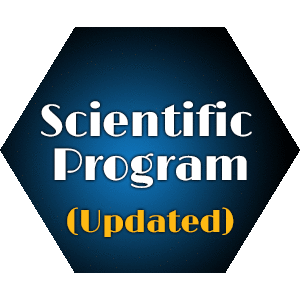
Ehsan Kamani
Iran
Title: Evaluating the effect of low level laser on liposomes containing chemotherapy drug (Docetaxel) and compare with prescribed chemotherapy drugs (Docetaxel) procedure in prostate cancer cells in vitro optic and laser
Biography
Biography: Ehsan Kamani
Abstract
Prostate cancer is the second most common cancer after lung cancer in men. Chemotherapy is one of the common methods of treating prostate cancer that results in the destruction of cancer cells. The side effects of chemotherapy include head and eyelash loss, white blood cell counts, weak immune defenses, infections, pain, dry mouth and osteoporosis. The presence of toxic effects of chemotherapy drugs is one of the problems of treatment because these drugs often act nonspecifically. The target is in order to increase the effectiveness of the drug on site, reduce the dose of supplementary drugs, reduce the side effects of chemotherapy and accelerate the recovery time on the one hand and on the other hand, reduce the economic and social costs of treatment and reduce the physical and psychological complications. The specified number of prostate cancer cells (LNCap-FGC-10) is divided into three groups of culture and each group is divided into several subgroups for specific laser wavelengths and appropriate energy: Control group, treatment group and cancer cell group. After cell culture, RNA extraction was performed on specified days and cDNA was made. Then, the rate of expression of specific genes to study the progression of cancer and the effect of the drug were studied and also with apoptosis tests after the effect of the drug MTT and alkaline phosphatase tests are also required to study cell proliferation and activity levels. Flow cytometry is performed to determine the phenotype and cellular properties. All stages are repeated and the accuracy of the results is calculated using SPSS software, also comparing the difference of expression of genes with T-Test.
From the result of this study it is observed that this method can be a safe, low-risk, low-cost and easy method for the treatment of prostate cancer.

